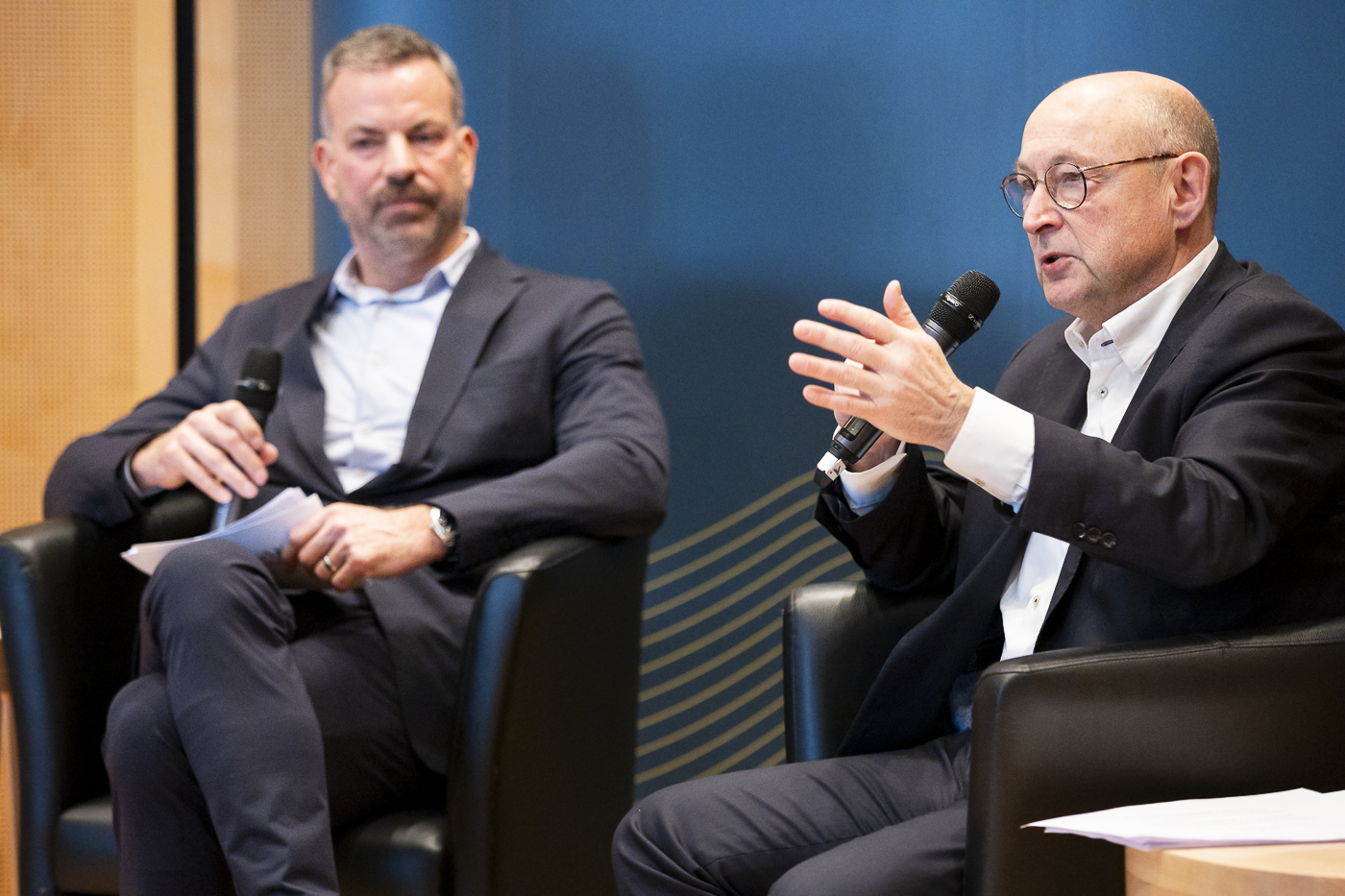"We don't have a knowledge problem, we have an implementation problem"
Business Breakfast: Vonovia CEO Rolf Buch as a guest at the VBKI
Text: Philipp Zettl | Policy Officer
The figures speak for themselves: over 810,000 companies belong to the real estate sector, which generates annual sales of 710 billion euros - equivalent to around 19 percent of Germany's GDP. By comparison, the automotive sector accounts for 5 percent of German economic output. One of the biggest players in this sector, which employs 7.5 percent of all people in Germany and generates 140 billion euros in tax revenue, is Vonovia. The Bochum-based DAX-listed company manages a total of almost 542,000 of its own apartments in Germany, Sweden and Austria, 481,000 of which are in Germany. We were able to discuss the state and prospects of the German real estate market with Rolf Buch, CEO of the housing giant, at the VBKI.
After a welcome address by VBKI Vice President Christian Kloevekorn, the CEO discussed the background to the current housing crisis in front of around 100 members and friends of the VBKI. A sharp rise in construction costs, high interest rates and excessive regulation are making the urgently needed creation of new living space more difficult. Rolf Buch outlined the "magic triangle" that needs to be considered for a turnaround: construction costs, rents and subsidies. Subsidies, which were used to combat the housing crisis in the 1970s, are probably not an option today in view of tight public budgets. The remaining variables are rents and construction costs, which are currently around 5,000 euros per square meter: "To make it worthwhile, we need rents of over 20 euros per square meter. That is unaffordable for many," says Buch. Building costs could be reduced to around 3,500 euros per square meter by reforming building regulations and subsidy regulations. "It's absurd that we allow ourselves to be told how big a storage room has to be. Even without these regulations, we build good houses that can be used for a long time and that people enjoy living in."





Buch is also critical of the current tenancy law: "It is important to protect certain groups, but we cap rents for everyone, regardless of income." The result is a distorted market in which civil servants or double earners receive subsidized apartments, while families with children or single parents are left empty-handed or have to make do in the expensive grey market. "We need a more differentiated rent cap and greater support for housing for socially disadvantaged groups."
In the discussion that followed, moderated by Christan Schulz-Wulkow - Co-Chairman of the VBKI Real Estate Committee - Buch went into more detail about the interaction between political messages and the capital market. "It doesn't work against the capital market, as England recently learned under Liz Truss." Calls for rent controls, expropriations or similar interventions often have expensive side effects: "They increase the cost of capital because they create uncertainty - and that ultimately drives rents up even further." Instead, if politicians are calling for more housing, they need to create an attractive environment for investment. "That would be the most effective lever to drive new construction and reduce rent levels," emphasized Buch.
According to Buch, the figures in Berlin illustrate the problem very clearly: "In Berlin, we need around 220,000 new apartments by 2040. But we, as one of the biggest players, have just 7,000 construction projects in the pipeline. That is a massive problem." Although the current Senate has taken the first important steps with the "Faster Construction Act", the governing mayor is simultaneously supporting measures such as the rent cap. "This creates uncertainty and blocks investment," emphasized Buch. In the capital, the average rent for existing Vonovia apartments is just under eight euros per square meter, while the average rent for new rentals is around eleven euros.
In conclusion, Rolf Buch appealed to politicians and society: "We know what needs to be done. There is not a lack of knowledge, but a lack of will to implement it." He said it was time to take early indicators such as collapsing building permit figures seriously - not only for economic reasons, but above all for social reasons. Looking ahead to the coming legislative period, Buch said: "The next four years are crucial. There is still a chance to turn the tide." If the turnaround does not succeed, we could have an AfD chancellor in 2029, Buch said.
Impressions
To the picture gallery: Please click here>
You might also be interested in
More impact, less bureaucracy
VBKI discussion paper: Three proposals for a sustainable university landscape
Experience politics up close
VBKI Young Professionals as guests at Bellevue Palace
"We have to beat the pace of the others"
Federal Minister of Finance Christian Lindner visits the VBKI









